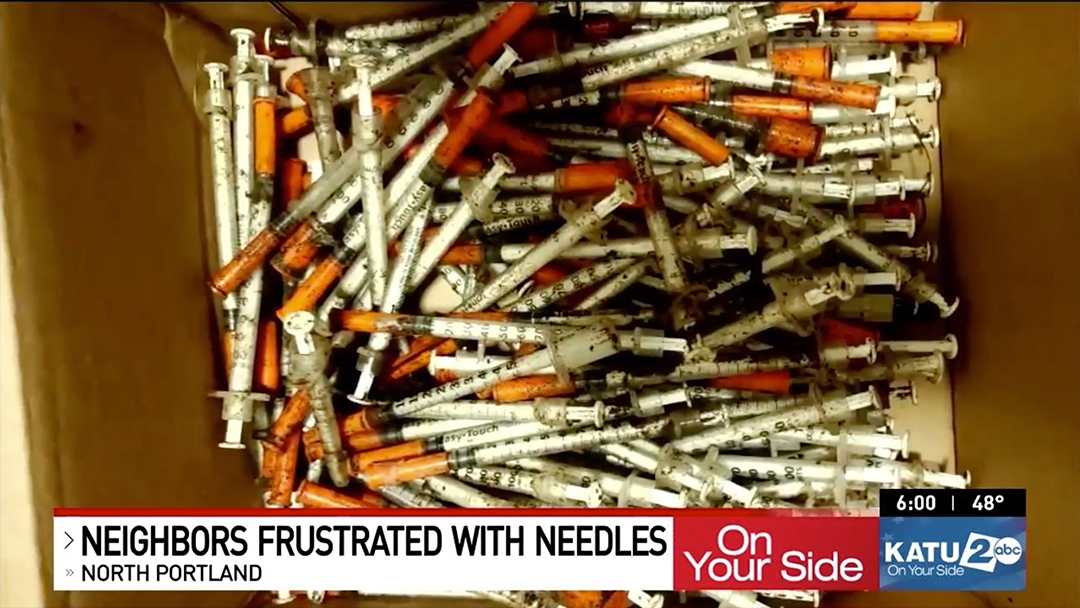There was no mention of sharps. They implied that most of their customers take their bags and leave discreetly, so a sharps container is not something they are interested in because it is very conspicuous. (This is in contrast to the needle exchange run by the county health dept. The health department gives users needles in a black plastic container with a lid. It looks like a very large film canister. The user can place used needles in the container and return them to the health dept. PPOP passes out needles sealed in plastic bags in packs of 10. Five of these are secured together with a rubber band and placed in a paper bag for the client.)
They are specifically not interested in promoting reduction of use or quitting using. If someone asks, they will give them pamphlets about available resources. They described a group of former users coming to one of their outreach events to try to talk to the users about quitting. They politely asked them to leave, because this is not their focus and they don’t want their customers to feel that their services are linked in any way to promoting recovery. Which they don’t call recovery, they call it use reduction or stopping.
There was a recognition that handing out meth pipes is not legal, but they describe it as a “gray area.” They describe everything they do as “100% legal, but some things are more legal than others.”
There was one mention of taking needles back if offered, but that was it. An hour and a half and one mention. They specifically noted several times that they are a demand service and have no requirement for exchange.
There was no mention of cleaning up any of the sites. They listed all the volunteer opportunities, not one included cleaning up areas or collecting discarded needles.
They had a lot to say about the police. There was a lot of discussion about the police basically letting them do their thing and avoiding any areas they are operating in under a type of gentleman’s agreement.
They described how to prepare heroin for injecting. Step by step. They talked at length of the many ways drugs can be injected or ingested, basically saying if there is an orifice in the body it can be used for drugs. If a user tells them they don’t have vein access anymore, the volunteer will give them instructions on alternative ways to use the drug. They have written instruction guides. They fell just short of promoting drug use as a lifestyle, but the above certainly implies that they are doing so.
They also described how to treat someone in an overdose with Narcan, the steps to take etc. including calling 911 and saying “my friend isn’t breathing.” They specifically do not mention drugs because they don’t want police to accompany the ambulances to these calls.
